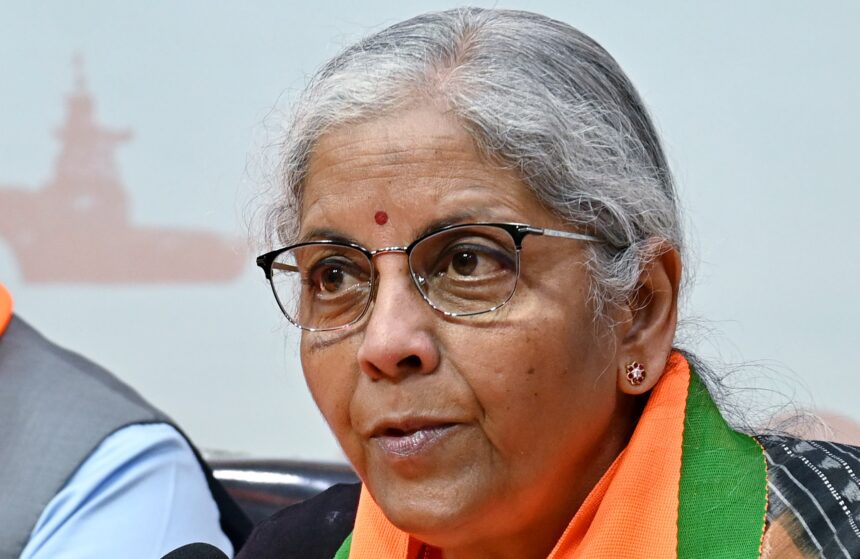Finance Minister Nirmala Sitharaman on Tuesday announced a slew of measures aimed at boosting the micro, small and medium enterprise (MSME) sector, one of the priority area of the government, to help them grow and also compete globally.
Speaking in Parliament while presenting the Union Budget 2024-25 on Tuesday, Sitharman said the government has provided special attention to MSMEs and labour-intensive manufacturing and formulated a package covering financial and technological support to the sector.
She announced a Credit Guarantee scheme of Rs 100 crore for MSMEs, building in-house capabilities, and a paradigm shift in the credit assessment model for credit eligibility.
“This budget provides special attention to MSMEs and manufacturing. A separate guarantee fund will provide Rs 100 crore to MSMEs,” Sitharaman said in her Budget speech.
The fund will facilitate term loans to MSMEs for purchase of machinery and equipment without collateral or third-party guarantees, she said.
The scheme will operate on the pooling of credit risks of such MSMEs.
A separately constituted self-financing guarantee fund will provide, to each applicant, guarantee cover up to Rs 100 crore, while the loan amount may be larger. Sitharaman said.
For this public sector banks will build their in-house capability to assess MSMEs for credit, instead of relying on external assessment, the Finance Minister said.
The Finance Minister also stated that this new mechanism will facilitate the continuation of bank credit to MSMEs while they are in the SMA (Special Mention Account) stage. Credit availability will be supported through a guarantee from a government-promoted fund.
In her speech in Parliament, Sitharaman said the budget aims to bolster various sectors, including manufacturing, services, urban development, energy security, and infrastructure, with comprehensive measures to drive economic growth and development.
The government has doubled the MUDRA loan limit in the Tarun category from Rs 10 lakh to Rs. 20 lakh.
Sitharaman proposed to reduce the turnover threshold of buyers for mandatory onboarding on the TReDS (Trade Receivables electronic Discounting System) platform from Rs 500 crore to Rs 250 crore.
This measure will bring 22 more CPSEs (Central Public Sector Enterprises) and 7000 more 10 companies onto the platform. Medium enterprises will also be included in the scope of the suppliers, the Finance Minister said.
The union government will expand branches of the Small Industrial Development Bank of India (SIDBI) to serve the micro, small and medium enterprises (MSME) clusters within three years, Sitharaman said.
The branches will cover 168 clusters of the total 242 clusters, she said.
Additionally, e-commerce export hubs will be developed to enable traditional artisans and MSMEs to launch their products in international markets. The hubs will be set up in public-private partnership (PPP) mode.
These hubs, under a seamless regulatory and logistic framework, will facilitate trade and export related services under one roof.
Financial support for setting up of 50 multi-product food irradiation units in the MSME sector will be provided, the union minister said. Setting up of 100 food quality and safety testing labs with NABL accreditation will be facilitated.
The budget sanctioned 12 industrial parks under the National Industrial Corridor Programme and facilitates rental housing for industrial workers through a PPP mode.
“Our government will facilitate development of investment-ready “plug and play” industrial parks with complete infrastructure in or near 100 11 cities, in partnership with the states and private sector, by better using town planning schemes,” Sitharaman said. (ANI)








